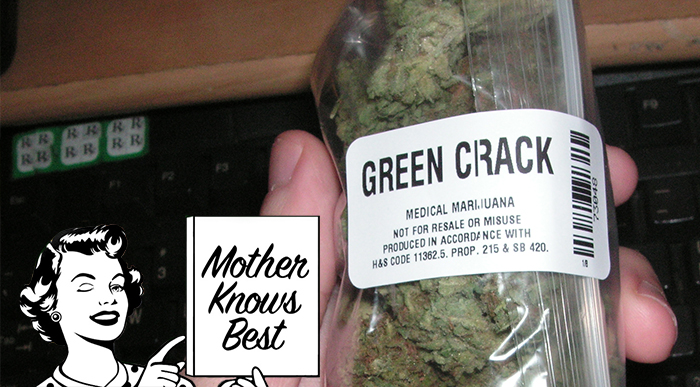If you spent even a few minutes on social media this week, you likely saw some headlines claiming that edibles aren’t as safe as people thought they were — or something to that effect.
For instance, ABC News ran with “Marijuana edibles might not be as safe as thought, health experts warn.” CNBC went with, “Canadian doctors warn marijuana edibles pose greater risk of overdose.” Meanwhile, Reuters ran, “Cannabis edibles may present unanticipated dangers.” And so on.
Each of these stories was prompted by the recent release of a Canadian government report which cautioned the newly legalized nation against haphazard edibles consumption. The report notes that edibles take much longer to kick in than simply smoking weed, hit much harder than smoking, could cause heart complications in some people, and could appeal to small children. And guess what? None of this is news. This is all common, publicly accessible knowledge, and has been for years.
The media has long blasted stories about people rushing to the ER because they ate too many edibles. Really, these stories have been around since medical marijuana legalization in California in the late ‘90s, but they surged after Colorado launched legal recreational sales in 2014. In August 2019, news reports highlighted that US Poison Control Centers experienced spikes in calls regarding overdoses on edibles. So, it isn’t just old news, it’s old news that gets rehashed every few months.
If Canadians were unaware of this information, that falls on the government, not on pot companies. If edibles packages need more warning labels, governments should require that. If the public needs more PSAs blasted across social media and the evening news, then the government should issue those. Private enterprise, despite its promises to self-regulate, will never self-regulate sufficiently, since regulations and warnings often get in the way of making profits.
How could regulators and pot companies resolve this lack of edibles awareness, assuming it’s still a real problem?
Right now, in pretty much every US weed-legal state and across the entire country of Canada, licensed cannabis companies cannot advertise like other businesses. They cannot advertise on television, and most places don’t allow radio advertisements, either. They cannot advertise on billboards (although some clever entrepreneurs have found loopholes). In other words, licensed weed companies could lead the charge on educating the public, but they currently have their hands tied.
Cannabis companies, through taxes, could fund PSAs similar to the anti-tobacco Truth campaign (minus the cheap scare tactics), but again, that would require a push from regulators, which hasn’t happened yet. Imagine weed ads online or on TV that include warnings like “Smoke responsibly,” or “If you have a heart condition, consult your doctor before droppin’ these bomb-ass gummies.” After all, people tend to recall advertisements much better than they do news reports.
Since pot companies can’t advertise, that leaves governments, which wield multimillion-dollar budgets from weed taxes, to bear the responsibility of issuing regular PSAs. Yet, as we’ve seen, regulators often drop the ball when it comes to educating the public on weed. That’s probably because weed-tolerant governments, which are making bank from weed taxes, don’t want to hinder their own easy revenues either.
At least in Colorado, there is one organization that’s devoted itself to educating the public on the danger of edibles. Smart Colorado, a semi-prohibitionist non-profit group, regularly purchases billboard space to caution the public against overdoing it with weed-infused food. The problem with leaving this kind of messaging to an anti-weed organization is that loyal cannabis consumers likely won’t take them seriously. If Kevin Sabet from the anti-weed lobby group SAM told you that a weed product was dangerous, would you believe him? If former US Attorney General Jeff Sessions said that you should “start low and go slow,” would you follow his advice or do the exact opposite?
The reality is that you wouldn’t believe anything these folks have to say about weed, just as you don’t believe the cops when they say weed is causing traffic fatalities.
It’s time for weed-legal jurisdictions to stop treating their new, booming industries like dirty little secrets. The US federal government, whether managed by a Democrat like Obama or a Republican like Trump, hasn’t done much to interfere with state weed programs, despite marijuana remaining a Schedule I drug. And it’s obvious, by now, that federal prosecutors aren’t going to punish individual states for legalizing weed.
So, let’s stop acting like a big DEA sweep is coming for us and start treating this industry, and its products, like any other commercial product. And that begins with open, fair communication and education campaigns with as wide and persistent a reach as any message regarding alcohol or tobacco products.
Follow Randy Robinson on Twitter











